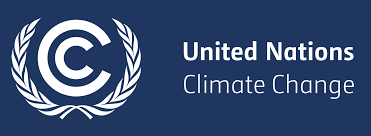
https://unfccc.int/news/governments-commit-to-increase-climate-finance-t...
The report was prepared in the form of compilation and synthesis of the second biennial communications on projected levels of climate finance. It notes that despite ongoing challenges, including the COVID-19 pandemic, problems over energy security and inflationary pressures, many governments are committed to maintaining or increasing their current levels of climate finance. Twenty-two Parties reported an increase in projected levels of provision of public financial resources, with six Parties stating their intention to double their contributions through 2025.
Welcoming the insights from the report, Daniele Violleti, Senior Director at the UN Climate Change secretariat, said: “We need to recognize that the magnitude of the transformational shift to demands acceleration of our efforts to ensure predictability and clarity in both public and private finance, as well as in the access and delivery of climate finance. This is crucial for incentivizing ambitious climate action that is imperative for a successful implementation of the Paris Agreement.”
Financial support for adaptation on the rise
In the report, seven Parties outlined their commitment to doubling their contributions to finance needed for the developing countries to adapt to climate change and 16 Parties highlighted their efforts to achieve a balance between adaptation and mitigation, with a further three Parties reporting they were nearing parity. Two Parties reported that they had allocated over 50% of their bilateral support to adaptation.
The report also contains detailed information on increased financial contributions through multilateral channels, several of which have a focus on adaptation. Such contributions were made through entities including the Global Environment Facility (GEF), the Adaptation Fund (AF), the Green Climate Fund (GCF), and Least Developed Countries Fund (LDCF).
Inspiring examples of climate action showcased in report
The following are examples of actions showcased by countries in their submissions:
- France’s AFD 2050 Facility, launched at the One Planet Summit in Paris, supports around 30 developing countries in their implementation of the Paris Agreement. The facility aims to assist these countries in designing and implementing long-term low-emission and climate-resilient development strategies.
- Under Germany’s G7 Presidency, Just Energy Transition Partnerships (JETPs) were established, designed to assist partner countries in accelerating their transition to a just energy system while phasing out fossil fuels. The South African JETP was already announced at COP26, with a funding of USD 8.5 billion, including USD 700 million from Germany. Building on this success, G7 leaders intend to support Indonesia, India, Senegal, and Vietnam with JETPs tailored to the specific needs and priorities of each country.
- Norway has developed the Energy for Development (EfD) initiative, a bilateral country-specific renewable energy management programme. Its primary objective is to improve energy access as a means to reduce poverty. As part of this programme, measures are being taken to reduce emissions from fossil energy sources, including initiatives to combat flaring and methane emissions. Since 2007, the initiative has contributed to clean energy for at least 18 million people.
- Switzerland has made it a priority to systematically consider climate risks and incorporate mitigation and adaptation measures into the design and monitoring of all its international development activities. To ensure effective integration, the country has developed a specific tool, the Climate, Environment and Disaster Risk Reduction Integration Guidance (CEDRIG), which provides guidance on how to incorporate climate and environmental factors as well as disaster risk reduction into international development projects.
- Under Canada’s Partnering for Climate Initiative the country has committed CAD 315 million (USD 239 million) to support climate change adaptation projects in Sub-Saharan Africa and other regions. Canada also puts a strong emphasis on the significance of locally-led solutions and the role of frontline leaders in climate action, aiming to empower Indigenous leadership and knowledge in addressing climate change by fostering partnerships between Indigenous Peoples in Canada and those in developing countries.
About the report and next steps
The compilation and synthesis of the second biennial communication was presented at the second biennial in-session workshop to discuss the information provided by parties in accordance with Article 9.5 of the Paris Agreement.
The deliberations of the workshop will be summarized in a further comprehensive report. This report, alongside the compilation and synthesis of information, will serve as a basis for Article 9.5 deliberations during the upcoming COP28 in Dubai.
You can watch the recording of the in-session workshop here.










Add new comment